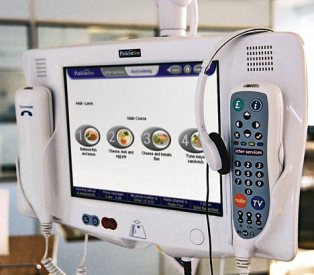The Haltons and calling eleven-year-olds “fat”
A story is doing the rounds today, much like recent similar stories, about a child called Tom Halton and receipt of a letter telling his parents that his BMI was higher than expected for his age.
Before I go any further with this post, I need to point out that the BBC are talking rubbish about the story. Their second paragraph:
Tom Halton, 11, of Barnsley was told he was overweight after taking part in a national scheme which measured children’s body mass index.
Not true. The letter was sent to Tom’s parents, not Tom. They chose to share it with him. This upset Tom, and he didn’t eat his dinner that night.
The facts are these: Tom’s BMI is heavier than 93% of children his age. The World Health Organisation classifies him as overweight. An increased childhood BMI is associated with lifelong adult illness, in particular Type II Diabetes.
Yes, there are problems with using BMI for purposes like these, particularly in children, and the letter should have acknowledged those more clearly. But it is wrong to simply ignore the best indicators we have in children of their future adult health.
Tom’s dad said:
These letters are doing more harm than good. You might as well send a T shirt with FATTY on it. The impression it gives is that your child is fat, it’s your fault and they will die from a horrible disease.
The letter is not the best written in the world, but it makes the point fairly clearly that the high BMI increased Tom’s risk of future illness. Which, to be blunt, it does.
As for the T-shirt comment, it strikes me firstly that it was the parents who shared this letter with their child, and have now plastered him over the papers with headlines calling him “fat”. Why?
I note that the “grovelling apology” from the DoH actually apologises for causing the parents offence if they felt their parenting skills were being derided – which is not suggested at any point in the letter.
So where do Dan and Tracy Halton suggest we go from here? I’m genuinely interested to hear their views – and yours. Do we inform parents of modifiable statistical risks to their children’s health and wellbeing, or not? If so, how do we go about it? Is writing to parents not the best way to tackle this? Would individual consultation where the full facts could be clearly explained be a better option? Or does that come across as being “summoned to the headmaster’s office”, and yet more punitive (and expensive)?
What do we do? How do we tackle this? I’d love to know your thoughts.
This post was filed under: Health, Ethics, Medicine, National Childhood Measurement Programme, Obesity Epidemic, Public Health.


 In Tony Blair’s day, New Labour were the masters of spin – at their most effective when they did it so convincingly that we didn’t even realise the facts were being spun, or else we were led to believe that we could see through the spinning, when in fact that presentation was the intention all along.
In Tony Blair’s day, New Labour were the masters of spin – at their most effective when they did it so convincingly that we didn’t even realise the facts were being spun, or else we were led to believe that we could see through the spinning, when in fact that presentation was the intention all along.